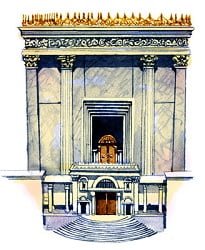Wednesday: From Moses to Jesus
Though ancient law codes found in Egypt and Mesopotamia also provide evidence for a widespread knowledge of the principles and precepts found in God’s law, none of them is complete. In fact, many of these codes also contain laws that promote idolatry and other practices that God later condemned. So, God chose a people to be the stewards of His true law. These people were the Hebrew nation, the descendants of Abraham and heirs to the covenant promise made to him many centuries earlier, a promise whose ultimate fulfillment was found only in Jesus.
Read Deuteronomy 7:6-12. How does this passage reveal the close relationship between law and grace?
When God chose Israel to be the depository for His law, He knew that they were an imperfect people. Nonetheless, He entrusted them with the task of sharing His will with other imperfect people. The very designation kingdom of priests and a holy nation (Exod. 19:6, NKJV) shows that Israel was to be God’s mediating priesthood for the entire world. She was the one chosen to bring the truth of God’s will to the confused nations. And, despite Israel’s mistakes, failures, and, at times, outright rebellion, it was still among these people that the Messiah came, lived, ministered, and died, fulfilling the covenant promise made to Abraham many centuries earlier.
Read Galatians 3:6-16. What does Paul write that helps to better clarify the true meaning of the covenant promise?
Though many in ancient Israel understood the single noun form of seed to mean Israel as a single corporate entity, Paul here presents Jesus Himself as the true and complete fulfillment of the covenant promise. So, the gospel itself, with its clear emphasis on both law and grace, most fully manifests and reveals the covenant.
Think about all the long ages that passed from the time Abraham first received the covenant promise to the time of Christ. What does this tell us about the need for patience when it comes to trusting God?


Very timely for me